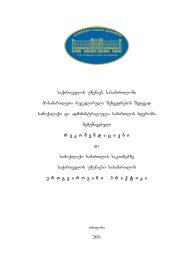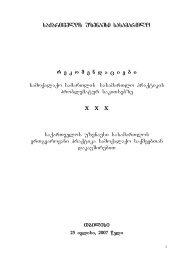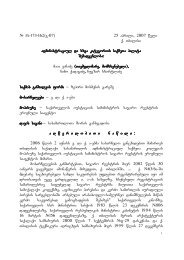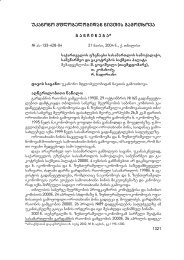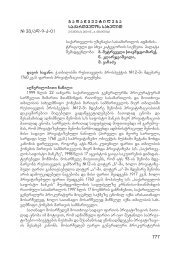#1(36)'13
#1(36)'13
#1(36)'13
You also want an ePaper? Increase the reach of your titles
YUMPU automatically turns print PDFs into web optimized ePapers that Google loves.
ARTICLE 316/1 OF THE CIVIL<br />
CODE OF GEORGIA –<br />
STATUTORY INTERPRETATION<br />
OR LEGAL GROUNDS FOR<br />
CLAIM?<br />
GIORGI AMIRANASHVILI<br />
Ivane Javakhishvili Tbilisi State University, Faculty of Law, Master Student<br />
Law of obligations is the biggest and the most important part of the civil law.<br />
General part of the law of obligations has a significant role in private law. General<br />
provisions about obligations start with Article 316 and point 1, Id presents the<br />
concept of obligation.<br />
In the opinion of German lawyers, this norm is not grounds for a claim, but it<br />
gives statutory interpretation of an obligational relation. Therefore, it appears<br />
that its purpose is only limited with introduction of the concept, which is disputable.<br />
The thing is that this norm does not describe facts, but it defines actions. Therefore,<br />
law is made of normative regulations. The latter establish implementation of certain<br />
actions or abstaining from the action. Even if we assume that this norm only<br />
provides the concept of obligation, it appears that those regulations that exist in<br />
the civil code that contain concept interpretations, do not have normative purpose,<br />
which does not correspond to the truth.<br />
Therefore, the goal of the article is to conduct critical analysis of different<br />
opinions existing in the literature and to try to establish what purpose the Article<br />
316/1 serves in reality.<br />
121



